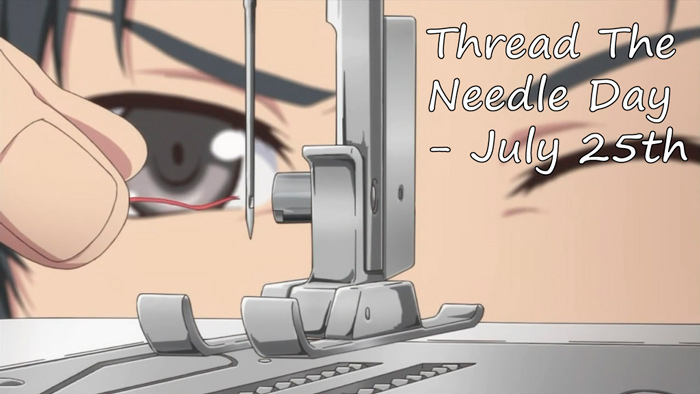International Epilepsy Day
What day is it?
Every year on the second Monday of February, the world celebrates International Epilepsy Day. Epilepsy is a non-infectious chronic brain disease that affects about 50 million people worldwide. This disease is characterized by periodic attacks with convulsions and loss of consciousness. They are associated with changes in the rhythm of electrical impulses that are constantly generated by the human brain.
Epilepsy has long been a mysterious disease for people, which was attributed a mystical meaning. This disease was accompanied by fear, misunderstanding, and social isolation. Unfortunately, a similar situation persists in some countries, which reduces the quality of life of patients and their relatives.
How did the idea of celebrating the International Epilepsy Day come about?
Epilepsy it is also mentioned in the codex of the king of Babylon Hammurabi. Even then, there was significant discrimination against people suffering from this disease. For example, they were forbidden to marry and be witnesses in court.
People in ancient times were convinced that convulsive attacks are caused by demons that inhabit the human body and gain power over it. People with epilepsy were called “possessed”. It is mentioned in the Gospels of Saints Mark and Luke, where the case of Jesus Christ healing a boy with seizures by expelling an evil spirit from his body is described.
In the works of the ancient Greek physician Hippocrates, there are descriptions of an illness similar to epilepsy, which the healer called a “sacred disease”. Hippocrates tried to treat her by trepanation of the skull, and also used copper as an anticonvulsant.
The famous doctor and alchemist Paracelsus treated epileptics with silver nitrate. The followers of Paracelsus used zinc, tin, mercury and other substances, which, of course, could not be effective medicines. Therefore, epilepsy was considered an incurable disease.
In the medieval era, the attitude towards this disease was ambiguous. On the one hand, it caused fear, on the other hand, it was considered characteristic of people with a prophetic gift and even saints. This opinion was supported by the fact that many prominent people of ancient times suffered from epilepsy. Among them were such well-known persons as the philosophers Plato and Socrates, the Roman emperors Julius Caesar and Caligula, the poet Petrarch. This disease quite often affected European monarchs – the kings of France, England and other countries.
Later, epilepsy lost the aura of a “sacred” disease, and its patients were considered insane. They were admitted to hospitals as mentally ill, and only in the middle of the 19th century did the first special medical institutions for epilepsy patients appear in Europe. At this time, doctors began to perform surgical operations on the areas of the brain responsible for convulsive conditions.
Advances in treatment
The first effective anticonvulsant drugs for epilepsy were drugs of the barbiturate class. They were put into circulation at the beginning of the 20th century and were used for a long time as the main medicine. Despite the good effectiveness, such drugs caused numerous unwanted side effects. Therefore, work on the creation of new antiepileptic drugs continued.
In the 1940s, studies of the human brain proved that damage to some of its areas, in particular, the temporal, is the cause of epileptic seizures.
The 1950s and 1960s were the period of development of the electroencephalogram, which made it possible to determine the main markers in the brain that lead to epilepsy. Scientists have made many discoveries thanks to experiments involving animals. Several new types of drugs have also been developed that have fewer side effects than first-generation epilepsy drugs.
At the end of the last century, the ketogenic diet gained popularity in the treatment of epilepsy, especially in cases that do not respond well to drug therapy. But this method has also not become a panacea, besides, it has its own contraindications and limitations.
An important achievement was the development of the vagus nerve stimulation technique, especially for patients facing severe side effects of drugs. The procedure is the implantation of a special electrical stimulator that affects the vagus nerve and prevents epileptic seizures.
Recently, as a supplement to the traditional methods of treating epilepsy, non-traditional ones are widely used – herbal treatment, aromatherapy, massage, acupuncture, homeopathy.
Psychological methods, such as autogenic training or music therapy, are also used. Despite the general positive effect, all these means still need additional research on their effectiveness. Scientists have also discovered the possibility of using medical marijuana in the treatment of epilepsy.
Many centuries in the history of epilepsy treatment have allowed humanity to gain experience and deep knowledge about both the medical and social aspects of this disease. However, to date, research on epilepsy does not stop in the world, new drugs are created, new methods are discovered in the hope of permanently overcoming this complex disease.
International Epilepsy Day in history
-
1849The first hospital for epilepsy patients was opened in England.
-
1912Phenobarbital was used to treat epilepsy.
-
1909The International League against Epilepsy was founded in Budapest. Eight European countries, the USA and Algeria became the first members of the organization.
-
1921The keto diet was first tested for non-drug treatment. But this method did not gain wide recognition and was revived again only in the 1980s.
-
1971In Great Britain, the law that allowed annulment of marriage due to epilepsy of one of the spouses was repealed.
-
2015The World Health Assembly adopted a resolution on the global burden of epilepsy, which called on countries to take coordinated measures to combat this disease and its consequences.
Frequent Questions and answers on International Epilepsy Day
In 2 out of 3 cases, the cause of the disease cannot be established. Identified causes include stroke, brain tumor or injury, certain genetic and neurological diseases, and bacterial, viral, or parasitic infection.
Treatment of this disease is carried out by neurologists — doctors whose specialization is the brain and central nervous system; as well as neurologists with a narrower specialization — epileptologists.
Sports exercises do not affect the onset of seizures, on the contrary, they can improve the patient’s condition. But at the same time, it is important to avoid injuries and sports that are dangerous for injuries.
Most often, this is the use of anticonvulsant drugs, but there is also surgical treatment in the form of brain surgery. Electrical stimulation of the vagus nerve is also used. For some people, a ketogenic diet—increasing the level of fat and decreasing the level of carbohydrates in the daily diet—helps.
Perhaps, but unfortunately not for all patients. In children, epilepsy often goes away with age, 70% of adults completely get rid of seizures with the help of medication. The treatment process is usually long — from 4 to 10 years.
How to celebrate International Epilepsy Day?
International Epilepsy Day founded in 2015 on the joint initiative of the International Epilepsy Bureau and the International Epilepsy League. Since then, about 120 countries have joined its holding. On this day, various events are held aimed at obtaining reliable information about this disease, destroying myths, and changing the attitude of society towards epilepsy patients.
Everyone can join the global community in conducting International Epilepsy Dayspreading the word about this event on social networks, using the hashtag #EpilepsyDay, making donations to special funds that take care of the problems of people with epilepsy.
On the second Monday of February, you can learn more about such problems firsthand — from people who have a diagnosis of epilepsy and have the courage to share their experiences, difficulties, and achievements with the world around them. Their stories about living with this disease can easily be found on the world wide web.
It will not be superfluous to tell children about the features of this disease in an accessible form. It should be explained that adults and children with epilepsy in the periods between attacks are no different from others. They deserve respect, support and understanding from other people, because living with this disease is very difficult.
Why important this day?
The importance of this day is that it gives people in different countries the opportunity to simultaneously pay attention to the problems of people with epilepsy and learn about ways to overcome them.
It is necessary to know that there are countries where people with this disease cannot find work, despite the fact that they want to and can work effectively on an equal basis with others; often they do not have the opportunity to create a family due to misconceptions in society. Many people with epilepsy find it much more difficult to overcome self-prejudice than to manage their condition with medication.
Unfortunately, Ukraine also has many unresolved problems in this area. About 100,000 people with a diagnosis of epilepsy live in our country, and they are also very dependent not only on the availability of available drugs, but also on psychosocial factors.
Also, everyone should remember the importance of funding the further study of epilepsy and the search for new methods of its treatment, because about a third of patients today live with an uncontrolled course of the disease, because the existing treatment does not help in their case.
Therefore, both the state and citizens should work hard to prevent any discrimination of epilepsy patients and to provide them with free access to modern, high-quality treatment.
When will we celebrate International Epilepsy Day?
| Year | Date | Weekday |
|---|---|---|
| 2021 | February 8 | Monday |
| 2022 | February 14th | Monday |
| 2023 | February 13 | Monday |
| 2024 | February 12 | Monday |
| 2025 | February 10 | Monday |



































